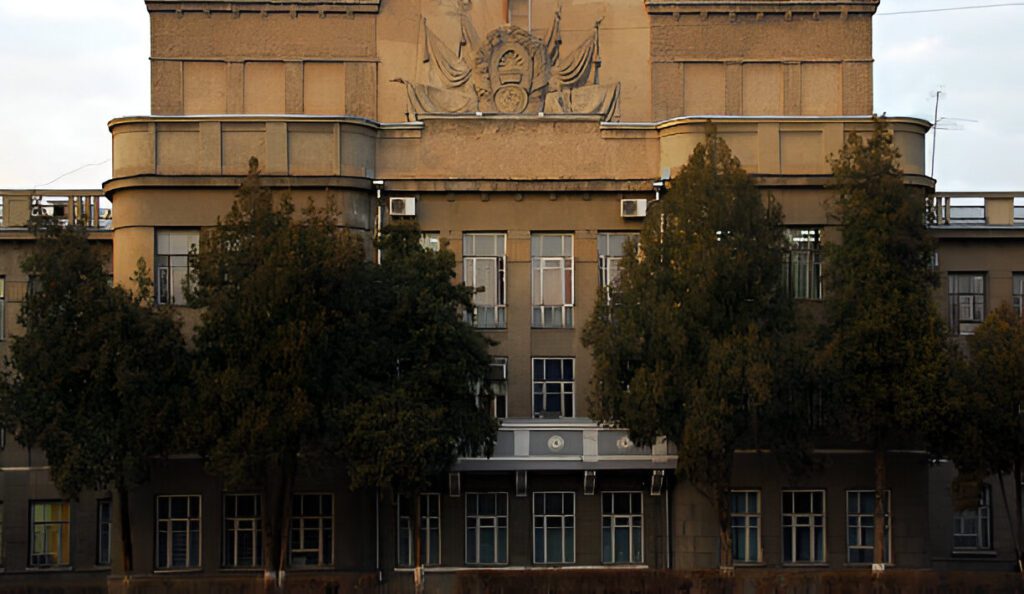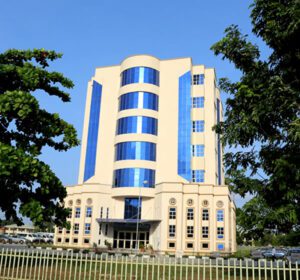This article provides a comprehensive look into Nigerian universities with U.S. accreditation, the process of accreditation, its benefits, and the challenges faced by institutions.
The globalization of education has led to a growing interest in international accreditation standards. Nigerian universities, like their counterparts worldwide, are increasingly seeking U.S. accreditation to improve their academic standards, enhance global recognition, and open up opportunities for students.
Introduction to Nigerian Universities with U.S. Accreditation
Accreditation is the process through which institutions and programs are evaluated to ensure they meet certain standards of quality. U.S. accreditation is widely recognized as a benchmark for educational excellence and institutional effectiveness.
As Nigerian universities strive to compete in the global academic arena, U.S. accreditation becomes a key goal, providing an internationally recognized mark of quality. It reflects a university’s commitment to high standards in teaching, research, and student services.
Overview of the Accreditation Process for Nigerian Universities with U.S. Accreditation

Achieving U.S. accreditation is a rigorous process that involves external peer review, continuous self-assessment, and compliance with established standards. U.S. accrediting bodies, such as the Accreditation Board for Engineering and Technology (ABET) and the Association to Advance Collegiate Schools of Business (AACSB), provide detailed criteria universities must meet. These criteria include academic excellence, financial stability, and adequate infrastructure.
The accreditation process involves:
- Self-Study: Institutions conduct internal reviews to evaluate their strengths and weaknesses.
- External Review: A team of peer reviewers assesses the university’s programs, facilities, and academic environment.
- Final Decision: Based on the review, the accrediting agency grants or denies accreditation, with some institutions given time to address specific concerns before being fully accredited.
Why U.S. Accreditation is Important for Nigerian Universities
U.S. accreditation enhances the credibility and prestige of Nigerian universities. It signals to students, employers, and international partners that the institution meets high standards.
Key benefits include of Nigerian Universities with U.S. Accreditation
- Enhanced Educational Standards: U.S. accreditation requires adherence to globally accepted academic and operational benchmarks, raising the quality of education provided.
- International Recognition: Students graduating from accredited institutions find it easier to pursue further education and career opportunities abroad.
- Collaboration Opportunities: U.S. accreditation opens doors for partnerships, student exchanges, and collaborative research between Nigerian and U.S. universities.
Challenges Nigerian Universities Face in Achieving U.S. Accreditation
The journey toward U.S. accreditation is not without obstacles. Nigerian universities face a range of challenges, including:
- Regulatory Barriers: Navigating the complex interplay between Nigerian regulatory bodies, such as the National Universities Commission (NUC), and U.S. accrediting agencies can be difficult.
- Resource Constraints: The financial and infrastructural investments required for accreditation are often beyond the reach of many Nigerian institutions, which struggle with limited funding.
- Cultural and Academic Differences: U.S. accreditation standards may conflict with local educational practices and curricula, necessitating significant changes to academic programs and administration.
List of Nigerian Universities with U.S. Accreditation

A growing number of Nigerian universities have achieved U.S. accreditation, particularly for specific programs in fields like engineering, business, and technology. Some of these universities include:
- Covenant University: Accredited by the Accreditation Board for Engineering and Technology (ABET) for its engineering programs.
- American University of Nigeria (AUN): Accredited by U.S.-based agencies for programs in business, IT, and liberal arts.
- Pan-Atlantic University: Holds U.S. accreditation for its MBA and business programs through the Association to Advance Collegiate Schools of Business (AACSB).
These accreditations typically apply to individual departments or programs, rather than the entire university.
Comparison Between Nigerian Accreditation and U.S. Accreditation Standards
The Nigerian University Commission (NUC) is responsible for accrediting institutions within the country. However, there are significant differences between Nigerian and U.S. accreditation systems.
- Quality Assurance: While both systems emphasize quality, U.S. accreditation tends to focus more on continuous improvement and innovation, while the NUC emphasizes compliance with minimum academic standards.
- Evaluation Methods: U.S. accreditation involves external peer reviewers from other universities, whereas NUC assessments often involve local academic staff.
- Flexibility: U.S. accreditation agencies encourage curriculum flexibility and institutional autonomy, whereas NUC guidelines are often more rigid.
These differences highlight the challenges Nigerian universities face when trying to harmonize their systems with U.S. standards.
Benefits for Students Attending Nigerian Universities with U.S. Accreditation
For Nigerian students, attending a university with U.S. accreditation can be life-changing. Some key benefits include:
- Access to International Opportunities: U.S.-accredited universities often have exchange programs, allowing students to study abroad or work on global research projects.
- Ease of Credit Transfer: Students can transfer credits to U.S. institutions more easily, facilitating smoother transitions for those who wish to pursue higher degrees abroad.
- Job Market Competitiveness: Graduates from U.S.-accredited programs are highly sought after by multinational companies, both in Nigeria and internationally, due to the recognized quality of their education.
Partnerships Between Nigerian and U.S. Universities

U.S. accreditation fosters collaborative relationships between Nigerian and U.S. universities, leading to joint programs, faculty exchanges, and research initiatives. Notable partnerships include:
- Covenant University and MIT (Massachusetts Institute of Technology): Joint research programs in STEM fields.
- University of Lagos and Howard University: Collaborative programs in the humanities and social sciences.
- Obafemi Awolowo University and Harvard University: Exchange programs that provide Nigerian students with opportunities to study abroad.
These partnerships benefit both institutions, offering diverse cultural perspectives and enriching academic experiences for students and faculty alike.
Future Prospects for U.S. Accreditation in Nigerian Higher Education
The future looks bright for U.S. accreditation in Nigeria. As more universities seek to raise their standards and compete globally, U.S. accreditation will play a pivotal role in shaping the higher education landscape. With Nigeria’s growing focus on internationalization, the following developments are expected:
- Expansion of U.S. Accreditation: More Nigerian universities, especially private institutions, will pursue U.S. accreditation for a wider range of programs.
- Strengthened U.S.-Nigeria Educational Relations: Increased collaboration between Nigerian and U.S. educational bodies will lead to more exchange programs and joint ventures.
- Impact on Nigeria’s Education System: U.S. accreditation will push Nigerian universities to adopt international best practices, enhancing the overall quality of higher education in the country.
Conclusion of Nigerian Universities with U.S. Accreditation
U.S. accreditation offers Nigerian universities a path to international recognition and higher academic standards. Despite the challenges, the benefits—ranging from improved educational quality to enhanced global opportunities—are clear.
As more Nigerian universities seek U.S. accreditation, the future of higher education in Nigeria will undoubtedly be shaped by this global benchmarking system. The ongoing collaboration between Nigerian and U.S. institutions signals a bright future for students and educators alike.


